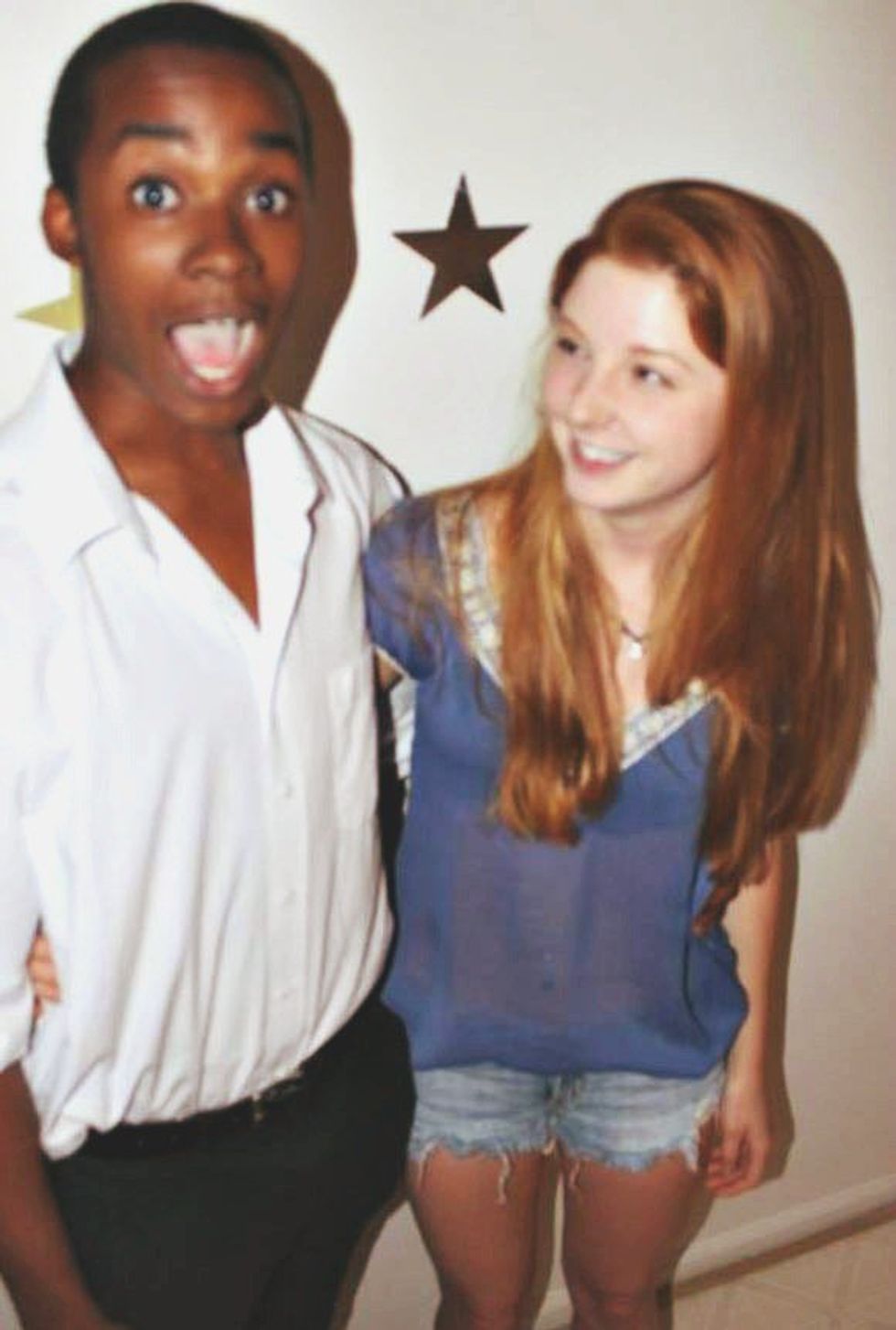My parents told me love was unconditional, but it never really felt that way. It felt like the act was subjective to the views of others. It felt like love was black and white until I loved someone of another race. I fell in love with a boy whose skin was darker than ground cinnamon and whose eyes were black as midnight when I was a freshman in college. I grew up in an upper-class suburban neighborhood. My first year of high school was in the quiet rural countryside. I was introduced to a lot of people with little diversity and became aware of racism’s sharp edge.
Growing up, unconsciously through my adult figures I was told to avoid and in some cases fear diversity, and that people of different culture could be admired but not mingled with. I heard the racist remarks at local gatherings, the jokes on the bus, and most apparently when I traveled anywhere in small towns or upper-class community gatherings. I remember staring at my velcro shoes when the news came on and the adult women snorted -- the person in question was always “of course black."
I have never and will never personally be exposed to the bluntness of some views of racism. But I would like to shine the light on the other side, the perspective of the white female who was crucified by falling into the arms of an African American man. I fell in love instantly, noting the cultural differences and being enamored by them. I felt the uncomfortable grip of reality digging into my shoulder blades from the moment I saw his profile turn the pages his textbook. Our contrasting histories and skin color somehow made me feel more at home than anything prior. As I looked at him, I saw a person void of prejudice and arrogance. I saw someone beautiful, his mind sculptured by artists.
Unfortunately, this is not what everyone else saw. I was labeled, called racist terms, not only behind my back but to my face. I was no longer the passionate, driven woman to some of my peers, I was the girl that dated a “ black” guy. I will never forget the way my peers hissed that term, “ the black guy." I had never faced such alienation from the simple act of loving another human. I was prompted to believe my decision to love him was immoral. That I was now “black and never going back," that I was disrespecting myself by loving someone “lesser than” my ancestry. I was told not to bring him up during family dinners and forced to hide our relationship from my distant relatives. At one point a close friend looked at me and asked in sincerity, “But would you really want to have, like, mixed babies?” “We never thought you'd end up with a black guy." A cruel gentleman even told me my partner had “bad genes." I was cast aside from the position I had grown up through, I was no longer an equal among my neighbors. I was a cautionary tale.
I remember the look on people’s faces when I introduced him as my boyfriend. When some of my family stopped talking to me. But the thing that hurt me the most was not the way people thought of me, it was what they referred to him as: “the black guy." The derogatory term that overrode all of his captivating qualities, the term that diminished his intelligence, the term which tried to suppress my joy from being with him. I faced a lot of obstacles dating a man of the opposite race. I was told I was stupid, laughed at, spoken down to and given names that will forever be repeated in the depths of my mind. Of course, not everyone reacted this way. The reactions I received differed from region to region and from friend circle to friend circle. I realized I’d lived under the fallacy of overcoming prejudice and cultural segregation. I was naïve to believe that most people shared my values and beliefs.However, none of these obstacles ever prevented me from finding happiness with him. The malice and ignorance from other people only reflected their incompetence, never mine.
These truths need to be told. And if it makes people uncomfortable to read this, it means I told it the way it actually happened. The way some people never accepted him or me, because of something as trivial as our skin color. I didn't realize that in order to love, some of us had to be colorblind. When we categorize people’s worth based on their skin color, heritage, or religious beliefs, we are mere inches away from another Holocaust. I fought my battle with thick skin and patience, knowing that change takes time. I fought by putting my armor down, knowing that the largest mountains were carved by the gentleness of rain. In time, I believe our relationship silenced some of the voices that had spoken down to me previously. If anything, I hope you realize our skin color should never be a component of our worth or factor in choosing to love someone unconditionally.




















